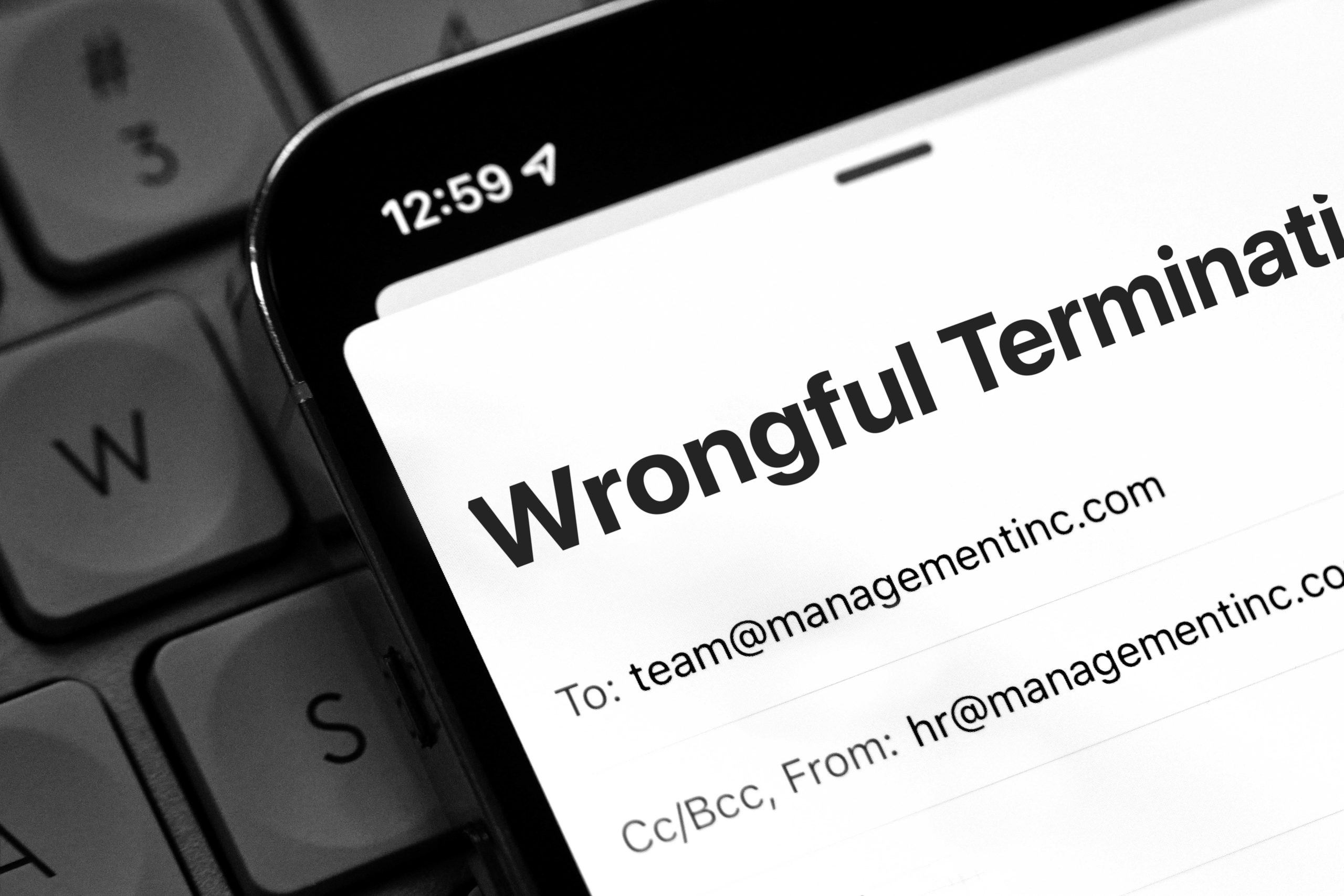
“I have been wrongfully terminated!” Most of the employees I speak with use a variant of those words when explaining to me what their employer did to them. But unfortunately, there is no such thing as a claim for “wrongful termination.” In fact, whether an employer acted “rightly” or “wrongly” is of no consequence whatsoever. All that matters is whether the termination was unlawful.
People call me all the time with horror stories detailing, often through tears, about why and how they were terminated. Fired without warning for no reason or for something they can prove they did not do. Fired while caring for a sick child or parent. Fired for respectfully disagreeing with their boss. Fired after complaining about being bullied. These stories are tragic. And their employers’ actions are no doubt “wrongful.” But they are not always, or even often, unlawful. Unfortunately, I suspect that the popularity of the phrase “wrongful termination” has caused many employees to assume they have rights that the law does not, in fact, provide.
How your employer fired you is rarely, by itself, grounds for a lawsuit against them. Putting aside rights under employment contracts, most employees have no legal right to “due process” or really any “process” at all. If you have been accused of something, just because the employer didn’t conduct an investigation, speak with you, or even follow its own policies governing employee discipline before firing you, does not automatically mean they have broken the law. While those may be factors in certain types of cases, this type of “wrongful” conduct will rarely, if ever, be enough by itself to prove unlawfulness.
The most important step in deciding whether your employer broke the law is identifying why you were fired. Employers often refuse to give a reason (which itself is wrongful, but generally legal), so you may have to do some investigating. Was it because of something you said or did? Was it because of some trait or characteristic? Was it because your boss just doesn’t like you? Without at least some idea as to the “why,” you’ll never know whether your termination was unlawful.
If your employer does give you a reason for the termination, is it the real reason or is it mere “pretext?” Pretext is an invented reason for a termination usually provided to hide an actual reason that could be unlawful. This is where the how may become relevant. A rush to judgment including a failure to follow their usual disciplinary procedures often means the employer is hiding the “real” reason for the termination and has invented a pre-textual reason to hide their unlawful motivation.
There are dozens of Rhode Island and federal laws that will have to be reviewed to decide whether the actual, non-pretextual reason for the termination was unlawful. This is when, and why, you call Enright Law. While I can’t list every potential violation of law, the following are some common questions I will have for you when we speak to determine whether your “wrongful termination” was unlawful:
• If you were fired for being sick or unable to work, were you entitled to job-protected sick time or medical leave? If so, how much and under what law?
• Does your condition constitute a disability?
• Have you recently asked your employer to accommodate your disability?
• Were you the only person fired or was it part of a larger layoff? While mass firings may be more difficult types of cases, employers will often use a large layoff to hide some individually unlawful terminations.
• Were you being singled out by your boss or did your boss mistreat multiple coworkers?
• Did you recently complain to a supervisor, HR, or someone else about your employer? Did you complain that the employer was violating the law?
• Before you complained, got sick, missed work, or requested an accommodation, how was your job performance?
The law does not require employers to do the “right” thing. They can generally violate their own policies, refuse to provide a reason for your termination, fire you for misconduct without evidence, and take various actions that many of us would consider unethical. You will need skilled, competent legal counsel to examine the facts and circumstances and decide whether your employer acted “wrongfully” or “unlawfully.”




